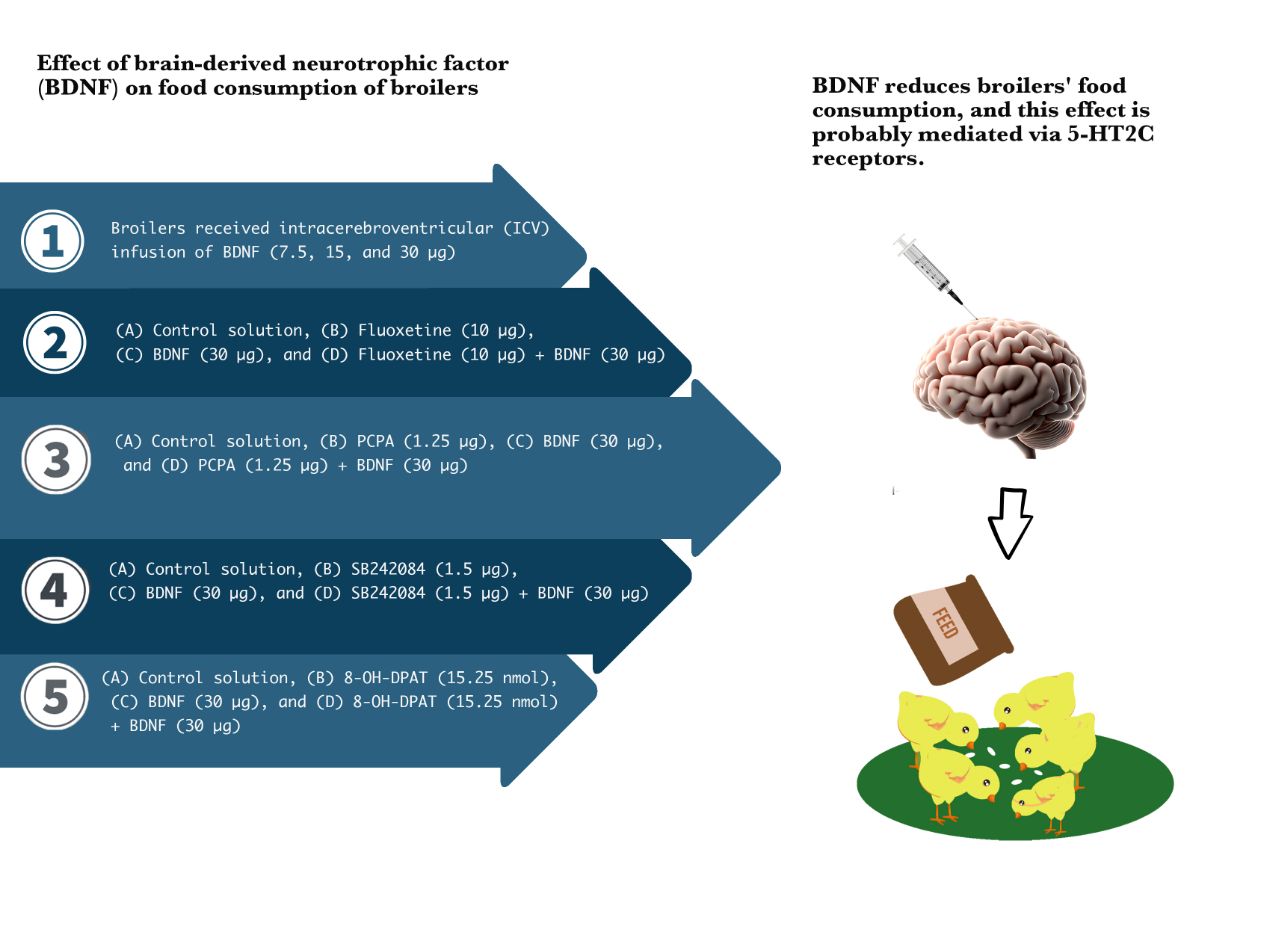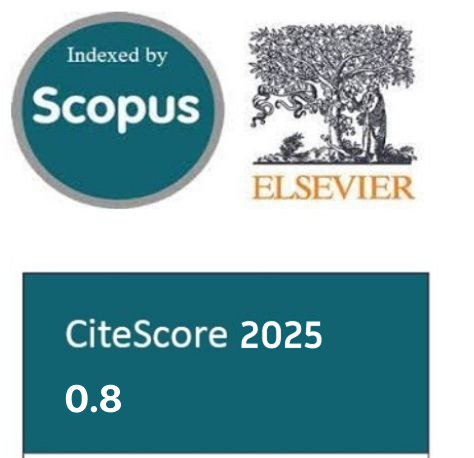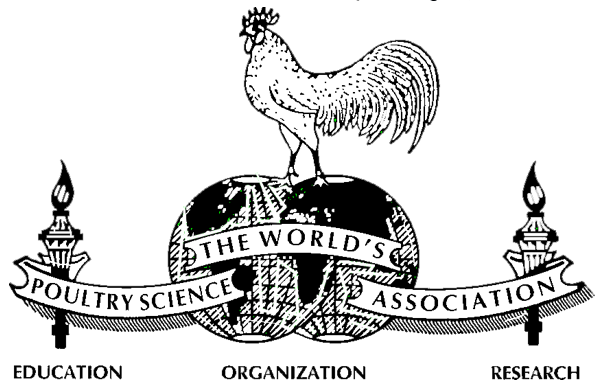The effect of brain-derived neurotrophic factor (BDNF) on food consumption of broilers: Role of serotonergic receptors
Keywords:
BDNF, Serotonergic receptors, Food consumption, BroilersAbstract
Previously, the effects of brain-derived neurotrophic factor (BDNF) on feed intake of mammals were studied, however, its role in avian feeding regulation remains unclear. Therefore, the present study aimed to investigate the possible effects of BDNF on the food consumption of broilers and its interaction with the serotonergic system. In the first treatment, broilers received intracerebroventricular (ICV) infusion of BDNF (7.5, 15, and 30 μg). BDNF (30 μg), Fluoxetine (10 μg), a serotonin reuptake inhibitor, and BDNF + Fluoxetine were injected in the second treatment. In subsequent treatments, instead of Fluoxetine, PCPA (serotonin synthesis inhibitor, 1.25 μg), SB242084 (antagonist of 5-HT2C receptor, 1.5 µg), and 8-OH-DPAT (agonist of 5-HT1A receptor, 15.25 nmol) were applied. Then, total food intake was recorded for 2 hours. According to the results, BDNF injection (15 and 30 μg) caused a significant decrease in the food intake of broilers compared to the control group (P<0.05). Simultaneous administration of PCPA and SB242084 with BDNF suppressed BDNF-induced hypophagia (P<0.05), while the injection of fluoxetine + BDNF strengthened this hypophagic effect (P<0.05). The decrease in feed intake caused by BDNF was not significantly changed by simultaneous injection of BDNF + 8-OH-DPAT (P≥0.05). According to the findings, it seems that BDNF reduces food consumption in broilers and this effect is probably mediated via 5-HT2c receptors.
Downloads

Downloads
Published
Issue
Section
License
Copyright (c) 2024 Hamed Zarei, Hediye Akhlaghi, Morteza Zendehdel (Author)

This work is licensed under a Creative Commons Attribution-NonCommercial 4.0 International License.


















